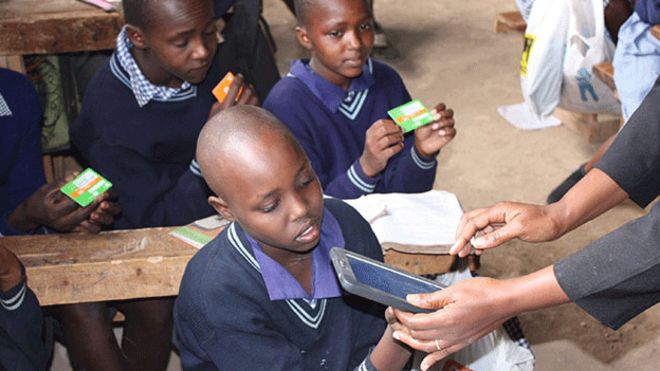
The UK’s Department for International Development has announced £100m of funding to help 175,000 of the world’s poorest girls get an education.
The push will include smartcards that monitor attendance and offer incentives for families to send their daughters to school.
It will also deploy satellite broadband to improve connectivity in rural areas.
Putting girls through school is increasingly seen as one of the best long-term ways to end poverty.
International Development Minister Nick Hurd said: “It is only through making use of the latest technological innovations that we will reach every girl.
“Already in Kenya, thanks to UK-funded attendance monitoring software, satellite broadband connectivity and interactive learning platforms, we have seen attendance increase by 15% in schools we work with.”
The iMlango programme is currently working in more than 200 schools in Kenya and includes:
- Android tablets and contactless attendance cards that allow schools to collect accurate attendance data. The data is used to offer conditional payments to incentivise families to send girls to school
- Satellite broadband – high speed connectivity via satellite is extending the use of technology in hard-to-reach areas
- Interactive learning platform – allows students to access lessons in English, maths and life skills. Tests suggest it improves scores by between 15 and 25%.
The money will be mainly spent in sub-Saharan Africa in countries such as Ethiopia, Nigeria, Malawi and Rwanda but will also fund work in Afghanistan, Myanmar, also known as Burma, and Nepal.
The investment was announced at the first Girls’ Education Forum in London.
Julia Gillard, chair of the charity Global Partnership for Education, said: “Investing in girls and women isn’t just morally right, it is essential for the development of families, communities and countries.
“When we educate girls, we see reduced child deaths, healthier children and mothers, fewer child marriages and faster economic growth.”
It is estimated that 63 million girls around the world are out of school, with over half of these in sub-Saharan Africa.
[Source: BBC]
















